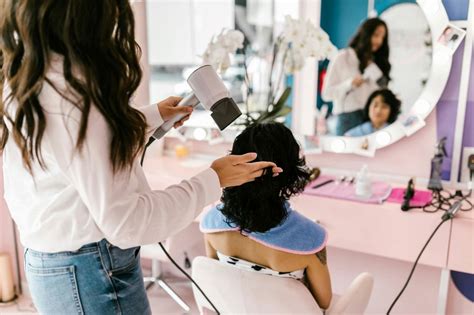Introduction
Post-inflammatory hyperpigmentation (PIH), also known as dark spots, is a common skin condition that can occur after acne or other inflammatory skin conditions. PIH develops when the skin produces excess melanin, the pigment that gives skin its color. This excess melanin can cause dark spots to appear on the face, neck, chest, or back.

While dark spots are not harmful to health, they can be unsightly and cause psychological distress for some people. There are a number of effective treatments available to help remove dark spots caused by pimples. In this article, we will discuss 10 proven methods for removing dark spots, including over-the-counter products, prescription medications, and home remedies.
10 Proven Methods for Removing Dark Spots Caused by Pimples
- Over-the-Counter Hydroquinone Creams
Hydroquinone is a topical medication that is available over-the-counter in concentrations of 2% and 4%. It is one of the most effective ingredients for lightening dark spots. Hydroquinone works by inhibiting the production of melanin. It is important to use hydroquinone creams as directed and to avoid using them for prolonged periods of time, as they can cause side effects such as skin irritation and ochronosis (a bluish-black discoloration of the skin).
- Prescription Tretinoin Cream
Tretinoin is a retinoid, a type of vitamin A. It is available by prescription in concentrations of 0.025% to 0.1%. Tretinoin works by increasing cell turnover and promoting the production of new collagen. This can help to fade dark spots and improve the overall appearance of the skin. Tretinoin can cause side effects such as skin irritation, redness, and dryness.
- Prescription Azelaic Acid Cream
Azelaic acid is a natural acid that is produced by yeast. It is available by prescription in concentrations of 15% to 20%. Azelaic acid works by inhibiting the production of melanin and by killing the bacteria that cause acne. It is generally well-tolerated and causes few side effects.
- Prescription Kojic Acid Cream
Kojic acid is a natural acid that is produced by fungi. It is available by prescription in concentrations of 1% to 4%. Kojic acid works by inhibiting the production of melanin. It is generally well-tolerated and causes few side effects.
- Intense Pulsed Light (IPL) Therapy
IPL therapy is a non-invasive light therapy that can be used to treat dark spots. IPL therapy works by delivering pulses of light to the skin. This light is absorbed by the melanin in the dark spots, which causes them to break down and fade. IPL therapy is generally safe and effective, but it can cause side effects such as skin redness, swelling, and bruising.
- Laser Therapy
Laser therapy is a non-invasive light therapy that can be used to treat dark spots. Laser therapy works by delivering a concentrated beam of light to the dark spots. This light is absorbed by the melanin in the dark spots, which causes them to break down and fade. Laser therapy is generally safe and effective, but it can cause side effects such as skin redness, swelling, and bruising.
- Chemical Peels
Chemical peels are a type of skin resurfacing treatment that can be used to treat dark spots. Chemical peels work by removing the top layer of skin, which allows the new skin to grow in its place. This new skin is typically lighter in color and free of dark spots. Chemical peels can be classified as light, medium, or deep, depending on the strength of the acid used. Light chemical peels are generally safe and effective for treating dark spots, while medium and deep chemical peels are more invasive and may cause side effects such as skin redness, swelling, and scarring.
- Microneedling
Microneedling is a minimally invasive skin rejuvenation treatment that can be used to treat dark spots. Microneedling works by creating tiny punctures in the skin. This triggers the body’s natural healing response, which produces new collagen and elastin. This new collagen and elastin can help to fade dark spots and improve the overall appearance of the skin. Microneedling is generally safe and effective, but it can cause side effects such as skin redness, swelling, and bruising.
- Home Remedies
There are a number of home remedies that can be used to help lighten dark spots caused by pimples. These home remedies include:
- Lemon juice: Lemon juice contains citric acid, which is a natural bleaching agent. Applying lemon juice to dark spots can help to lighten them.
- Apple cider vinegar: Apple cider vinegar contains acetic acid, which is a natural exfoliant. Applying apple cider vinegar to dark spots can help to remove dead skin cells and promote the growth of new skin cells.
- Yogurt: Yogurt contains lactic acid, which is a natural exfoliant. Applying yogurt to dark spots can help to remove dead skin cells and promote the growth of new skin cells.
- Green tea: Green tea contains antioxidants that can help to protect the skin from damage. Applying green tea to dark spots can help to fade them and prevent them from recurring.
- Prevention
The best way to prevent dark spots caused by pimples is to treat acne promptly and effectively. This will help to reduce the inflammation that can lead to the development of dark spots. In addition, it is important to protect the skin from the sun, as UV radiation can worsen dark spots.
Conclusion
Dark spots caused by pimples can be a frustrating skin condition, but they can be treated effectively with a variety of over-the-counter products, prescription medications, and home remedies. By following the tips in this article, you can help to fade dark spots and improve the overall appearance of your skin.
FAQs
Q: What causes dark spots caused by pimples?
A: Dark spots caused by pimples are caused by the body’s inflammatory response to acne. When a pimple forms, it can release chemicals that damage the surrounding skin cells. This damage can lead to the production of excess melanin, which can cause dark spots to appear.
Q: How long does it take to remove dark spots caused by pimples?
A: The time it takes to remove dark spots caused by pimples varies depending on the severity of the dark spots and the treatment method used. Some dark spots may fade within a few weeks, while others may take several months or even years to fade completely.
Q: Are there any side effects to dark spot treatments?
A: Yes, there are some potential side effects to dark spot treatments. These side effects vary depending on the treatment method used. Some of the most common side effects include skin irritation, redness, dryness, and peeling.
Q: How can I prevent dark spots caused by pimples?
A: The best way to prevent dark spots caused by pimples is to treat acne promptly and effectively. This will help to reduce the inflammation that can lead to the development of dark spots. In addition, it is important to protect the skin from the sun, as UV radiation can worsen dark spots.












